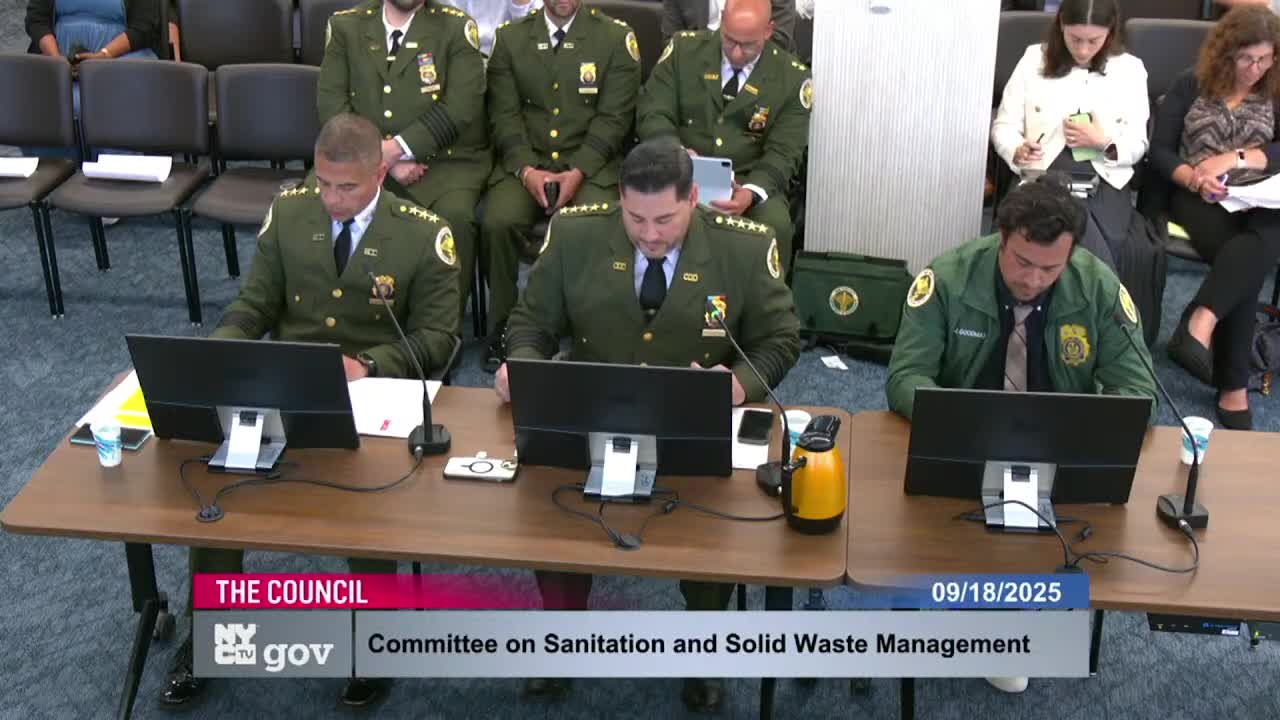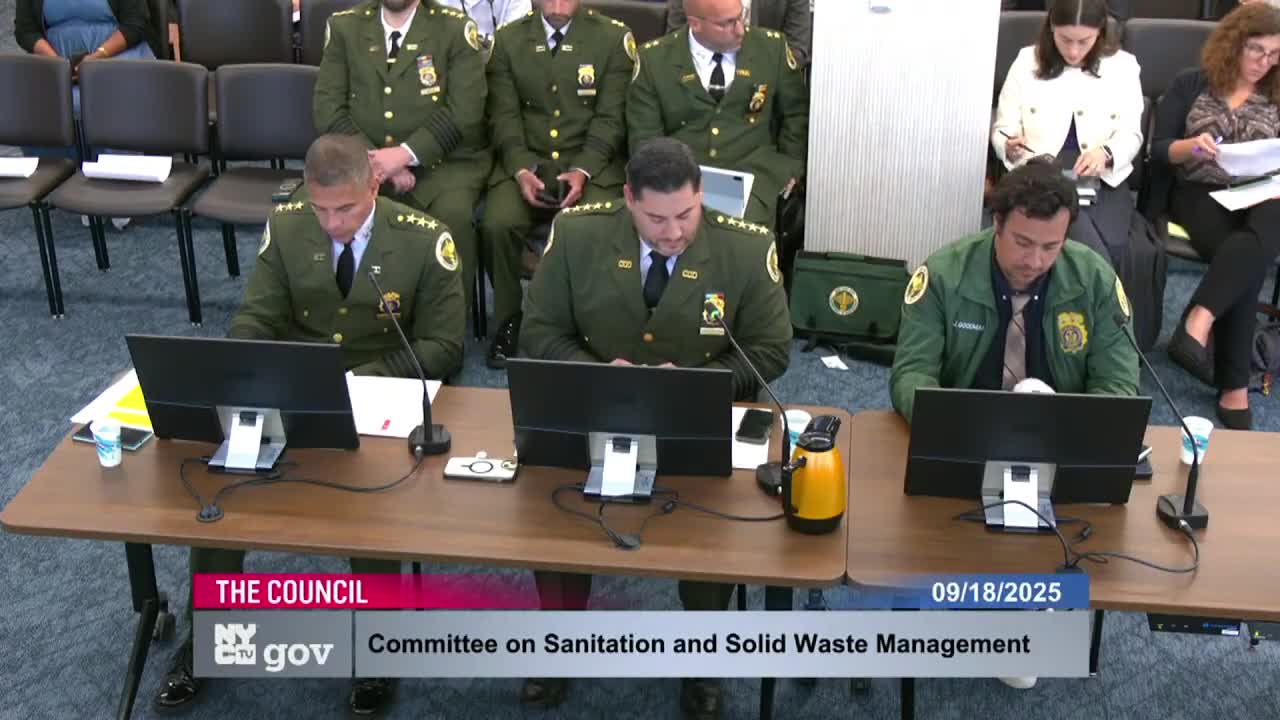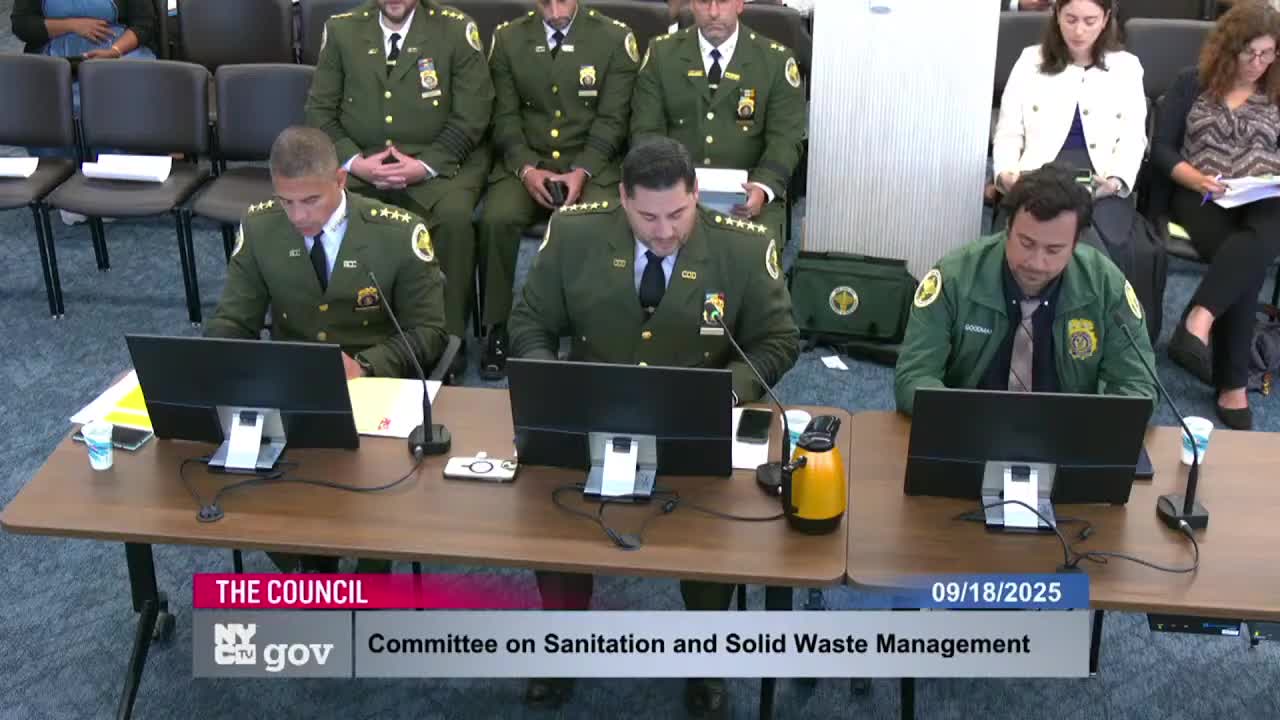Article not found
This article is no longer available. But don't worry—we've gathered other articles that discuss the same topic.

Council hears bill to create online illegal-dumping portal; DSNY says 311 already provides that function and highlights camera enforcement

Council member Dinowitz seeks medical-waste exemption from commercial waste zone; DSNY urges opposition

